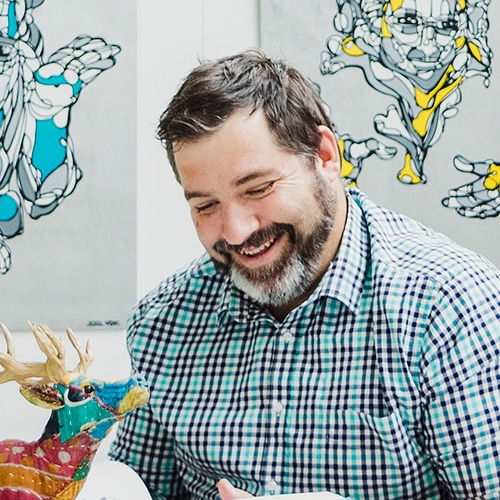It’s rare that a client will ask for a guarantee, but if they do, you’ll want to be prepared to answer the question properly. If you don’t, you’ll either say you offer no guarantee (which won’t sit that well with a prospect and is only part of the story) or worse you’ll agree to a guarantee without using it to your benefit.
So let’s set the story. A prospect has reached out, they have a problem you can solve by helping them with a new website. Together you have discovered that a cause of the problem is the website loading slowly, not displaying well on mobile and getting errors to show on the site resulting in a high bounce rate and poor conversion. They are now down 4 leads on last year, 1 lead is worth around $50,000 (after expenses). The desired outcome is to get them back the 4 leads they are missing but even 2 would be great. If you solve the problem, it will give them around $100,000 value (2 x $50,000 leads), your proposed fee is $10,000. They ask you if you provide any guarantee for your services.
First, this is a good sign, it shows they are serious and are open to the price on the table. But how you respond is important.
There are 3 ways to frame your answer. You can pick one of these or use all 3. Each “level” of guarantee you provide you charge more for, so you could use the options that include a guarantee as another pricing tier/option in your proposal.
1) Discounting for uncertainty: Price $10,000
This is something that Blair Enns talks about. Really, this is the same as offering no guarantee but you’re helping the client understand that this is exactly why you have priced the services the way you have. It explains that the gap between the $100,000 value and the $10,000 price is down to the fact there is some risk involved. Logically, if you guaranteed the $100,000 as the ROI you could charge them a lot more (and we’ll get to that). Of course, you will do your best to make it happen, but at the end of the day, it is the prospects who have to decide if you are the right person based on what they know about you and your past work.
2) Guarantee what you control: Price $15,000
This is where you take away some risks for the client and put it on yourself by guaranteeing that you can fix specific problems they are facing. In this situation you guarantee that you’ll work to current best practises, the website will load lightning fast, that it will be developed to run beautifully on mobile phones and that it will not display any errors caused by the website itself (maybe you say you’ll fix any that show up for the next 12months).
What you are not guaranteeing here is the end result as the prospect is still responsible for converting leads, providing a service people want and anything else you have discovered on their part that is contributing to the problem.
3) Guarantee the result: Price $90,000
Now, in this situation, you are guaranteeing that you will get the prospect the 2 new leads they desire - signed, sealed and delivered - as well as the fast-loading, mobile-friendly and error-free website. You can do this by any means necessary. Given the information you’ve discovered, just doing the website may achieve the goal alone. So, if you had 9x the budget, could you do it with minimal risk? What other tactics above and beyond the new website could you employ to achieve this goal?
With an additional $80,000 you could afford to hire an external expert, you could run ads, create landing pages, run multivariate split testing. Chances are, many of us could do it. It’s just being able to take on all the risk.
Sure, this isn't for everyone but as you can see there are a few ways to answer the “guarantee” question.

